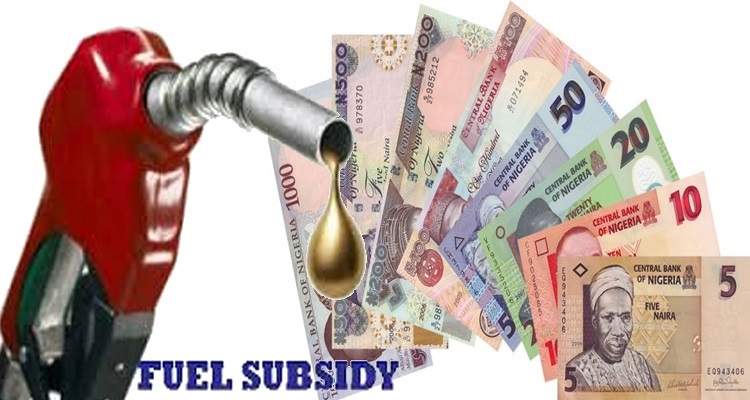Subsidy removal: Road transportation costs compete with airfares
Following the removal of fuel subsidy, which has increased the price of fuel from N189 to N537, transportation fares have doubled…

Following the removal of fuel subsidy, which has increased the price of fuel from N189 to N537, transportation fares have doubled across the country.
This is even as checks on some long distance routes indicated that fares are competing with flight tickets.
People who spoke to Daily Trust said they are making the comparison not because the fares are exactly the same, but because of all the delays, discomfort and risks associated with road transportation.
They said for those who could sacrifice a bit from what they used to save, it is better to pay and travel by air from Abuja to Lagos, which is less than one hour, than to travel by road which takes over 12 hours depending on the quality of the vehicle.
- Ebonyi gov okays recruitment of 39 doctors, 156 others
- Democracy Day: Bear with me on subsidy removal, Tinubu tells Nigerians
For instance, as at the time of filing this report, a Lagos-Abuja fare on a popular transportation company with a terminal in Jibowu was N32, 500 on one of its executive vehicles as against N16, 000 to N20, 000 before fuel subsidy removal.
The over 700 km road trip takes almost 13 hours, depending on road traffic.
In comparison with flight tickets, a Lagos-Abuja flight, which is about the busiest and most competitive route, costs about N48,000 on Arik Air, N50,000 on Dana; N55,000 on Ibom Air; N50,000 on Max Air and 49,714 on Value Jet.
However, these prices apply to advanced bookings of at least one week as the prices could go as high as N120, 000 in line with market dynamics and depending on the travel time.
Apart from the Lagos-Abuja road trip, other distant destinations in the North and southern parts of Nigeria have recorded a hike in fares since the fuel subsidy removal took effect last week, with transport companies adjusting their fares in line with the present realities.
For instance, Lagos–Calabar yesterday was between N29, 000 and N31, 300, which is half of the Lagos-Calabar airfare of N62, 000.
Also, Lagos-Kano and Lagos-Kaduna on luxurious buses taking off at night from different parts of Lagos cost N22,000 when the airfare on that route costs around N43,000 on Air Peace, N50,000 on Azman Air and N55,000 on Max Air if a passenger is booking ahead.
Also, Lagos-Port Harcourt transportation fare jumped from N15, 000 to N27, 000 in the wake of subsidy removal while Lagos-Yenagoa now costs N22, 900 from the previous N13, 000.
We rather go by air – Travellers
Mahmud Aliyu who sells cosmetics at Utako Market in Abuja said before now, he detested travelling by air because it was expensive.
“I stopped travelling by air since when the fare skyrocketed to over N50, 000 because to go and come back, I had to spend over N150, 000 including airport taxi, intra transport and others.
“I used to go by road, meaning adding to my margin of profit. But with this new transport by road, and all the inconveniences associated with it, I am going back to travelling by air. In fact, I returned from Lagos yesterday,” he said.
Ruth John, who works with a company, said she goes to Lagos twice a month by road.
“I have the option of going by air or by road but I chose the latter before. Now I will start going by air to save myself the stress of potholes, long hours and risk of meeting criminals. The difference between travelling by road and by air is not worth it,” she said.
It’s more advantageous to go by air – Experts
With the development, experts say air transportation might be the beneficiary given the seeming marginal difference in the two means of transportation following the subsidy removal.
The founding partner/executive director, General Sales and Solution Management Limited (GSSM), an aviation consultancy firm, Babatunde Adeniji, said, “If the rates by road increase to an unbearable point, some would move to air.”
He said air transportation is more convenient and safer, apart from being the fastest means of transportation.
Adeniji however said the difference would affect only a segment of the market as it is the same set of people that travel by flight.
“The change will affect some segments of the travelling public, but you must also realise that it is the same set of people who are travelling,” he said.
Road fare adjustment is 30% – ABC Transport
The founder/chief executive officer of ABC Transport Plc., Mr Frank Nneji, in a chat with our correspondent said the fare had not gone out of hand on the company’s booking system.
He said transport companies had made minor adjustments in line with the present realities but added that the adjustment is less than 30 per cent in ABC Transport.
“We didn’t add up to a 30 per cent increase. We just looked at the fuel component; and fuel is not the only component in fare determination,” he said.
Nneji however said that Nigerians would adjust as time goes by.
“Nigerians just need to readjust and cut down on excesses and non-essential travels,” he said.
From Abdullateef Aliyu (Lagos), Salim Umar Ibrahim (Kano) & Seun Adeuyi (Abuja)
